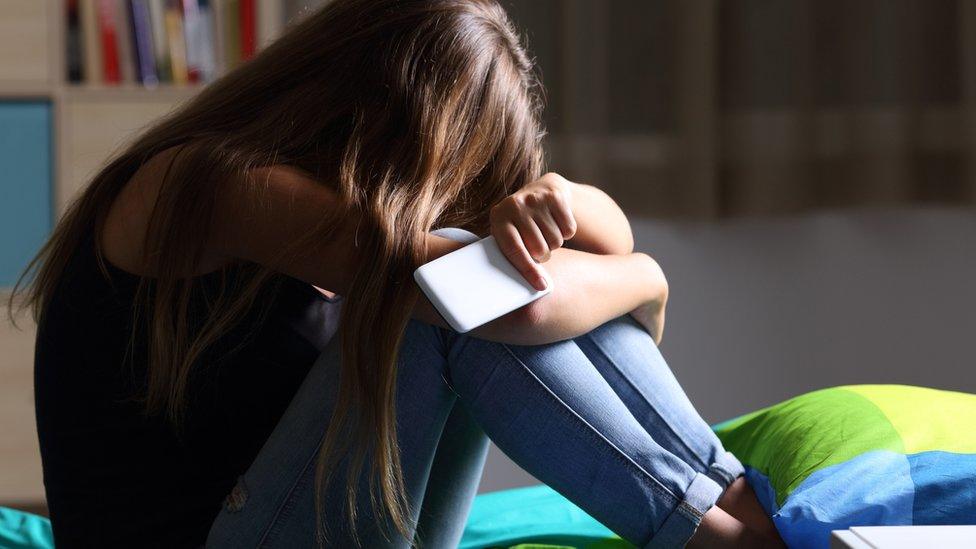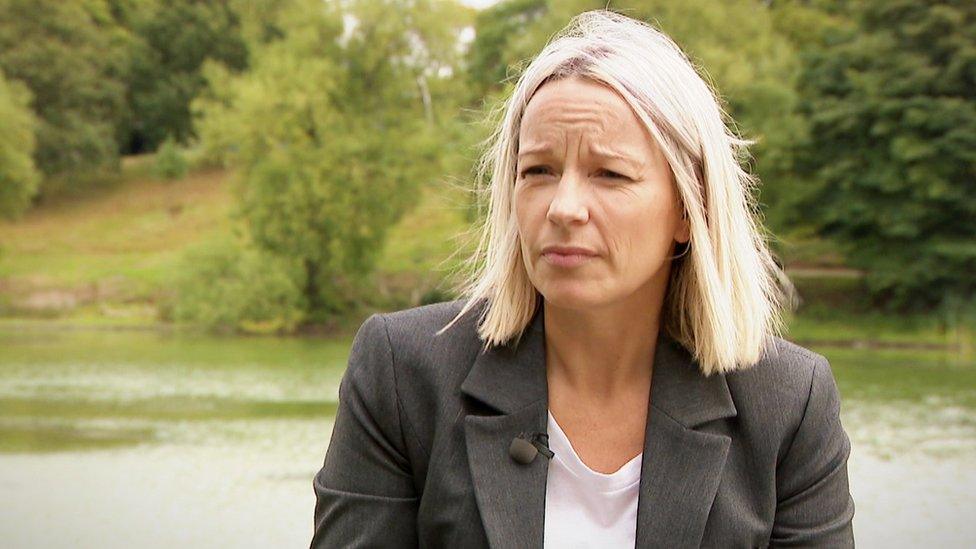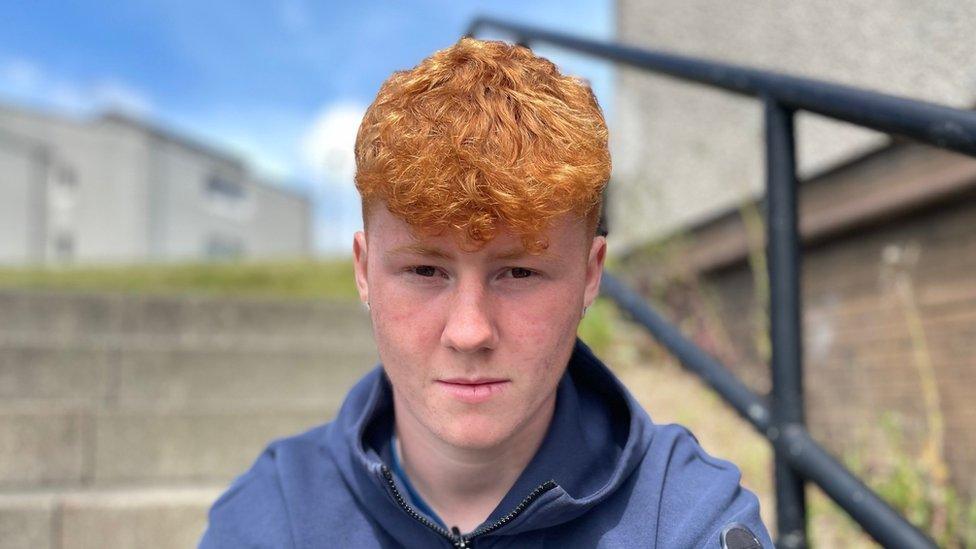Vast differences in Scotland's child mental health services, study shows
- Published

Research has found about a quarter of children referred to mental health services had attempted or thought about suicide
There are vast differences in the provision of child mental health services across health boards in Scotland, a study has found.
Research found that 25% of children referred to Child and Adolescent Mental Health Services (CAMHS) were suicidal.
In one health board 82% of those children were offered an appointment, but in another the figure was only 31%.
The Scottish government's suicide prevention strategy will be published this month.
The study, led by Dr Lynne Gilmour of the University of Stirling, examined referrals to Child and Adolescent Mental Health Services (CAMHS) in two health boards between January and June 2019.
It recorded whether or not they were offered a face-to-face assessment, offered treatment immediately, rejected or put on a waiting list.
It is thought to be the first study to examine what happens to children after they are referred for suicidality - having attempted or thought about suicide.
Health boards do not currently record what happens to children after they are referred to CAMHS for suicidality specifically.
The research also found 33% of referrals were for children under 12 years, which it said "highlights the often-missed opportunity for early intervention".
It concluded: "There are vast differences in how these referrals are processed and responded to.
"There is little difference in the issues being identified by referrers, the age range of children, and the behaviours they present and yet there were very different outcomes, and pathways of care."
It recommended that CAMHS improve data collection to better understand the scale of the problem.

Two suicide attempts 'not serious enough'
Two parents have told BBC Scotland their son attempted to take his own life twice and threatened to do so a third time, but still was not able to get a CAMHS appointment.
The boy was diagnosed with ADHD and experienced behavioural problems, including leaving home in the middle of the night.
The parents said it took two years for the boy to be put on the waiting list, then months before he saw a psychiatrist.
He is now 15 and showing signs of improvement, however his parents said the experience left them feeling guilty for taking up space in a system that was overcrowded.
The boy's father told the BBC: "The really worrying thing about this, you're being told that a suicide attempt is not a serious enough situation to warrant an intervention, and you just have to wait on the list.
"Since lockdown there must be many many more families and kids in this position, struggling in the same way we have been.
"It's desperately worrying. I think we're sleepwalking into a bit of a crisis in this country. It's a disaster waiting to happen."

Dr Gilmour said it was surprising to find that in both health board areas, there was a similar percentage of suicidality, despite there being different population sizes and different numbers of children.
She suggested the reasons for this were the volume of children being referred to CAMHS and the pressure services face to see children.
However she said her interviews showed staff also struggled to believe young children were suicidal, rather believing they were "distressed".

The study, led by Dr Lynne Gilmour, showed there were missed opportunities for early intervention by mental health services
She said: "There's no consistency across the country in terms of how children and young people who present as suicidal are dealt with.
"In some ways that's quite arbitrary and it's not about the child or young person, what's going on for them or their level of risk - it's more about how that service operates and the process.
"This isn't a slight on the CAMHS services - they're doing the best they can with the resources and money they've got.
"We need to find new ways of working with [children], and new ways of thinking about how we assess them and what support we're offering."
According to Public Health Scotland data released in June, the number of children being referred for mental health care in Scotland has risen by 22% since last year.
In that quarter, 73.2% were seen within 18 weeks - a slight increase from 72.7% during the same period last year.
The Scottish government said it was committed to its 18-week target for 90% of patients beginning treatment.
It has invested £40m to improve CAMHS and aims to clear all backlogs by March 2023.
A spokesperson added: "The new Suicide Prevention Strategy and Action Plan will be published next month detailing how we are currently supporting children and young people, and will identify further action to reduce suicide in children and young people."
If you, or someone you know, has been affected by mental health issues, BBC Action Line has put together a list of organisations which can help.
Related topics
- Published7 June 2022

- Published15 March 2022
